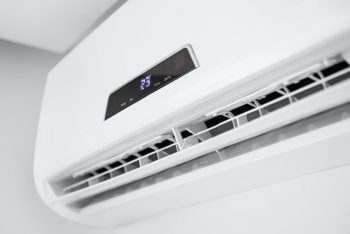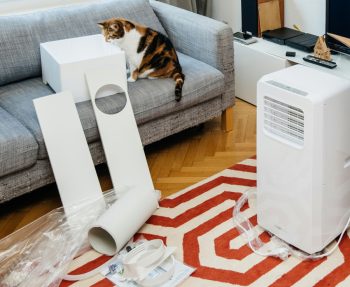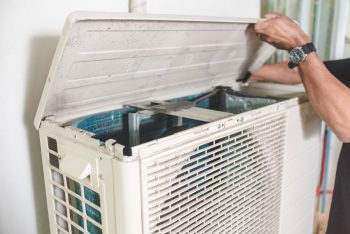
A refrigerant leak is one of the most common reasons for air conditioner malfunctioning.
Even minor changes in the refrigerant volume running through your AC unit can cause drastic dips in pressure balance, causing the unit to fail at its job.
That said, you might find yourself wondering — how much refrigerant does an air conditioner need? Here’s a quick guide.
- Refrigerant is carefully measured by considering the air conditioner’s BTU rating.
- Other factors come into play, such as the type of AC, its size, and the specifics of its components.
- An improper refrigerant charge can lead to malfunction.
- The condenser tag on the unit will tell you how much refrigerant your unit requires.
- For any concerns regarding refrigerant, always call your HVAC specialist.
Refrigerant is a chemical that changes from liquid to gas as it’s pumped through your air conditioner. When warm air blows over the refrigerant in the lines, it absorbs the heat and transfers it outdoors. Air conditioners need sufficient refrigerant constantly running through their system to efficiently remove heat and humidity and prevent various parts from freezing over.
How Much Refrigerant Does an AC Need?

The standard refrigerant required for an air conditioning unit stands at 2-4 lbs for every ton (12,000 BTU) of cooling.
So, if your air conditioner has a BTU rating of 65,000, it will require between 8 and 16 lbs of refrigerant.
But these numbers are not set in stone. Several factors can change the refrigerant requirements of your air conditioner, and they include the following:
- The size of the unit itself
- Make, model, and type (centralized, split, or window)
- Distance between the evaporator coils and the condenser coils
- Specifications of the coils
How To Tell How Much Refrigerant Your AC Needs

If you’re keen on determining how much refrigerant your air conditioning system requires, you can find out by simply checking out the condenser tag.
This tag is either near the power source (whether electricity or gas) or on split ACs, near the refrigerant line entry.
It should provide information such as the serial number, the model number, and the amount and type of refrigerant used to charge the system from the factory.
If you need to know how much refrigerant your air conditioner needs or have any other concerns regarding refrigerant, always call your trusted HVAC specialist.
Remember that refrigerant is a dangerous chemical that inexperienced hands should never handle. Call a professional to handle the job if you suspect your AC unit needs to be recharged.
Conclusion
Some people call refrigerant an air conditioner’s life force. Allowing the appliance to remove warm air from your space and refrigerant is why your air conditioner works to cool your home so effectively.
Ensuring enough refrigerant in your unit guarantees efficient performance and reduces the risk of malfunction and damage.
Frequently Asked Questions
Can You Put Too Much Refrigerant in an AC?
Yes, it is possible to overcharge your air conditioner. Putting too much refrigerant in the system results in malfunction, just like insufficient refrigerant.
The effects are often the same:
- Poor cooling performance
- Strange sounds
- Internal damage
Hiring only proven HVAC professionals to handle your AC’s refrigerant requirements is important.
Can You Run an Air Conditioner With Low Refrigerant?
Your air conditioner may continue to operate even if it has low refrigerant, but that doesn’t mean you should still turn it on.
Running an AC with a low charge can cause the unit to compensate to still achieve its job. Over time, this can cause damage to its various components, leading to more expensive repairs down the line.












